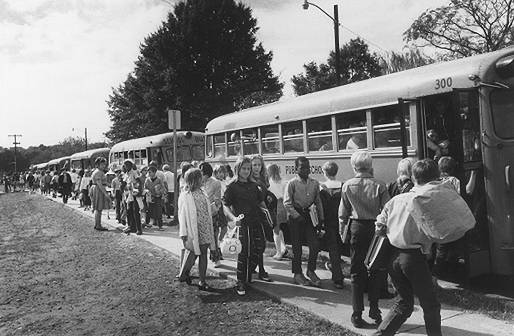Fall Quarter, part I
Weeks 1 - 5: Educational Reform 
Discussion of
public education in the United States most often has been characterized
by disagreements over what has caused lamentable, critical, “failure
and decline.” That is true now, as politicians and educators debate
whether or not the “No Child Left Behind” Act of 2002 has done
more good than harm. And this spring, the 50th anniversary of Brown
v. Board of Education was commemorated across the nation. Few questioned
that this decision by the U.S. Supreme Court changed the landscape of public
education, but many found little to celebrate fifty years after “separate
but equal” had been rejected as a matter of law.
We will study these reforms and the surrounding debate against the background
of an historical overview of how public education has been perceived to
need profound reform. Effective solutions – even predictable consequences
– depend on a sound analysis of what problems need to be addressed.
We will look closely at how the success or failure of schools has been assessed.
Schools, of course, are only part of the fabric of childhood, so we will
also study accounts of how race, class, gender and family life affect whether
or not children succeed in school.